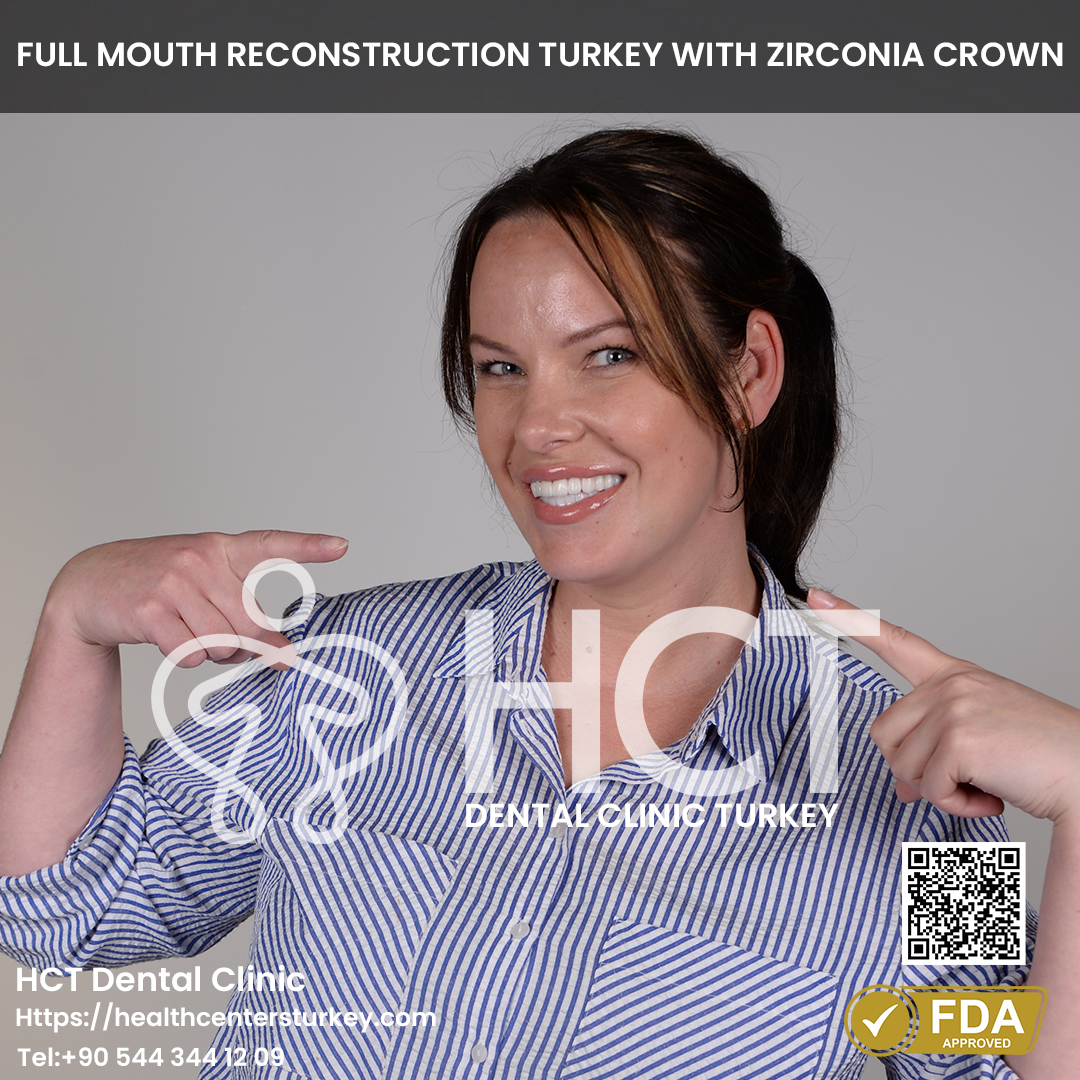Enjoy Luxury Dental Care in Turkey at Competitive Prices
Enjoy Luxury Dental Care in Turkey at Competitive Prices
Blog Article
Discover Services Available for Tooth Replacement Solutions
Dental implants have turn out to be a preferred answer for these looking to replace missing teeth. Understanding how these implants can affect adjacent teeth is essential for anybody contemplating this procedure, as nicely as for dentists and specialists involved in dental care.

One significant side is that dental implants are designed to be anchored into the jawbone, which suggests they're unbiased of adjacent teeth. Unlike dental bridges, which frequently require the alteration of neighboring teeth, implants can fill the gap with out compromising the health or structure of those surrounding teeth.
This independence helps maintain the integrity of adjacent teeth. When a tooth is misplaced, there can be a natural tendency for neighboring teeth to tilt or shift into the empty space. Such motion can lead to misalignment, which might affect bite and general oral health. By placing an implant, you successfully prevent this potential shift, promoting higher alignment in the long term.
Transform Your Smile with Dental Implants in Turkey
Additionally, dental implants help preserve bone density in the jaw. A natural tooth root supplies stimulation to the surrounding bone, preserving it healthy and strong. When a tooth is missing, the bone can start to deteriorate as a end result of lack of stimulation. With a dental implant mimicking a natural root, bone loss may be minimized, which not directly advantages adjacent teeth by preserving the overall structure of the dental arch.
While dental implants are advantageous, improper placement can influence neighboring teeth. If an implant is positioned too shut to a different tooth, it could exert undue strain on that tooth, leading to discomfort or potential injury. Proper planning and imaging techniques are essential for avoiding such points.
Maximize Value on Cosmetic Procedures in Turkey
Moreover, sustaining good oral hygiene is crucial after receiving an implant. If not correctly cleaned, surrounding teeth may turn into susceptible to dental points corresponding to decay or gum disease. This underscores the importance of diligent oral care following the process to ensure both implants and adjacent teeth stay healthy.
Regular dental check-ups are also vital for monitoring the health of surrounding teeth. Dentists can determine any shifts or potential problems early, permitting for timely interventions. This proactive method ensures that both the implant and adjacent teeth can coexist without issues.
Create the Perfect Smile with Implants and Veneers
Another consideration is the impact of implants on chew drive. When a single tooth is missing, the load of chewing may shift to adjacent teeth, probably resulting in wear or strain. Implants restore correct chunk dynamics by redistributing forces in the mouth, which may shield surrounding teeth from undue stress.
Some sufferers may raise considerations in regards to the appearance of dental implants. Well-placed implants can blend seamlessly with present teeth, improving total aesthetics. In distinction, failing to replace a missing tooth can lead to aesthetic points, including collapsing of facial structure and adjustments in smile dynamics.
It's also value discussing the psychological features of dental health. Experiencing tooth loss can adversely have an effect on one’s self-esteem and willingness to interact socially. By restoring your smile with implants, you can positively affect not only your oral health but also your emotional well-being.
Long-term success of dental implants typically hinges on numerous elements, Website together with the patient's health, maintenance habits, and the quality of the initial procedure. If adjacent teeth are healthy and properly cared for, the chances are excessive that they may proceed to thrive alongside the implants.
Price Comparison for Dental Care in Turkey
In conclusion, dental implants play a vital function in not simply restoring individual smiles, but in preserving the health and structure of adjacent teeth. By preventing shifting, maintaining bone density, and redistributing bite forces, implants can ensure that surrounding teeth remain in optimal condition. Proper placement, hygiene, and regular dental visits can additional improve the advantages of dental implants, resulting in a more healthy, extra assured smile for years to come back.
- Dental implants may help keep the alignment of adjacent teeth by offering a secure anchor, preventing adjacent teeth from shifting into the gap left by a missing tooth.
- The presence of an implant may stimulate bone growth in the jaw, serving to to protect the general structure and integrity of the adjacent teeth.
- Unlike conventional bridges, implants do not require alteration of surrounding teeth, thus preserving their strength and anatomy.
- Implants can enhance the distribution of bite forces evenly throughout the dental arch, lowering the stress on neighboring teeth throughout chewing.
- A well-integrated dental implant can lower the risk of bone loss in the space surrounding adjacent teeth, contributing to their long-term health and stability.
- The aesthetics of adjacent teeth could be improved due to the support provided by implants, which might result in better overall beauty outcomes.
- With correct placement, dental implants can prevent gum recession around adjacent teeth by maintaining enough dental architecture.
- Implants might help mitigate the risks of periodontal disease in close by teeth by promoting wholesome gum tissue and providing a washer-friendly floor.
- Long-term success of dental implants can lead to improved oral hygiene routines, which in turn advantages the health of surrounding teeth.
- The improved functional ability of an implant can encourage sufferers to chew more effectively, thus rising saliva manufacturing and aiding in the safety of adjacent dental tissues.undefinedHow do dental implants affect adjacent teeth?
What are dental implants and how do they interact with adjacent teeth?undefinedDental implants are synthetic tooth roots which may be surgically placed into the jawbone. They present a steady foundation for replacement teeth while guaranteeing minimal disruption to adjacent teeth, preserving their integrity and alignment. Begin Your Dental Adventure in Turkey.
All-inclusive Dental Services for Beautiful Smiles
Can dental implants cause problems for close by natural teeth?undefinedGenerally, dental implants do not hurt adjacent natural teeth. However, if the implant just isn't placed correctly or if there’s insufficient oral hygiene, it may result in problems such as adjacent tooth decay or gum disease.

Will getting a dental implant change the greatest way my adjacent teeth feel?undefinedMost patients report no change in the sensation of adjacent teeth after implant placement. However, it could take a while to regulate to the presence of the implant, just like how one might adapt to other dental restorations.
Can dental implants help protect the health of adjacent teeth?undefinedYes, dental implants may help keep the health of adjacent teeth by preventing bone loss that can happen after tooth loss. This preservation helps the alignment of close by teeth, reducing the risk of shifting or misalignment.
Inclusive Cosmetic Dentistry in Antalya
Do I need to switch adjacent teeth when getting an implant?undefinedTypically, adjacent teeth do not want alteration when inserting an implant. This is amongst the advantages of dental implants over conventional bridges, which regularly require reshaping adjacent teeth for assist.
How does the therapeutic process of an implant affect close by teeth?undefinedThe therapeutic process entails osseointegration, the place the implant fuses with the jawbone. During this time, adjacent teeth remain unaffected and retain their function, although it’s important to comply with post-operative care recommendations. Enhance Your Smile with Dental Veneers in Turkey.
Full-Service Dental Assessments throughout Antalya
Can dental implants lead to bone loss round adjacent teeth?undefinedIf dental implants are placed properly and cared for adequately, they should not lead to bone loss round adjacent teeth. In reality, they can help stimulate bone development, combating the natural bone loss that often follows tooth extraction.
What precautions ought to I take to protect adjacent teeth after getting an implant?undefinedRoutine dental hygiene, read this together with brushing and flossing, together with common dental check-ups, is crucial. Avoiding onerous foods and following your dentist’s aftercare directions may also defend both the implant and adjacent teeth.
Is it frequent for adjacent teeth to shift after an implant is placed?undefinedIt's not typical for adjacent teeth to shift after an implant placement, particularly when the implant is placed appropriately and maintained correctly. If there’s any movement, it could be due to other underlying issues that must be evaluated by a dental professional. Report this page